C.W. Anderson presents “Our Audience is a Machine”: Structured Stories and the Computation of Journalistic Context
In recent years there has been much excitement about “data journalism” – the use of large and small datasets to tell news stories differently or visualize information in compelling ways. This talk discusses an emerging future of journalistic work, one that reverses the order of operations described above. Instead of using databases to craft narratives, so-called “computational” or “structured” journalism turns narratives into databases; basically, it creates structured data out of unstructured events and uses that structure to inform journalistic work and produce new news products. Politifact and Homicide Watch are often pointed to as examples of structured journalism.
This talk describes the findings of three months of field research on the computational journalism project Structured Stories. It discusses the operations, ideologies, and institutional routines of Structured Stories, and analyzes the underlying computational cultures that seem to intersect with the larger belief patterns of traditional journalism. It concludes with an analysis of some of the ways that a deeper understanding of the work routines of Structured Journalism might help us understand general trends, tensions, and critical junctures common to digital news production in general. The talk focuses on four aspects of Structured Stories worthy of notes: the ontologies of evidence imagined by Structured Stories, the changing epistemologies of journalists participating in structured stories, the manner in which notions of journalistic professionalism might be changing in a world of computational journalism, and finally, the economic imperatives driving work in Structured Stories.
Chris was a participant in the Data & Society workshop “Who Controls the Public Sphere in an Era of Algorithms?”. His work on computational journalism raises important questions on how adopting technological and data practices can be used to supplement the accountability and ‘check to power’ function of journalism and the fourth estate.
For some background on Chris’ talk, please take a look at the following articles:
C.W. Anderson is an ethnographer and historian who studies the news, and how changes in technology, culture and economics are shaping journalism.
He is the author, co-author, or co-editor of 4 books: Rebuilding the News (Temple University Press), The SAGE Handbook of Digital Journalism (with Tamara Witschge, David Domingo, and Alfred Hermida); Remaking the News (with Pablo Boczkowski, The MIT Press), and The News Media: What Everyone Needs to Know (with Michael Schudson and Len Downie, Oxford University Press).
He was born in Cleveland, Ohio and lived in various parts of New Jersey from age 4 until 18. He did his BA in Political Science at Indiana University, Bloomington, and then worked as a community organizer in Houston, TX and Jersey City, New Jersey.
About Databites
Data & Society’s “Databites” speaker series presents timely conversations about the purpose and power of technology, bridging our interdisciplinary research with broader public conversations about the societal implications of data and automation.


